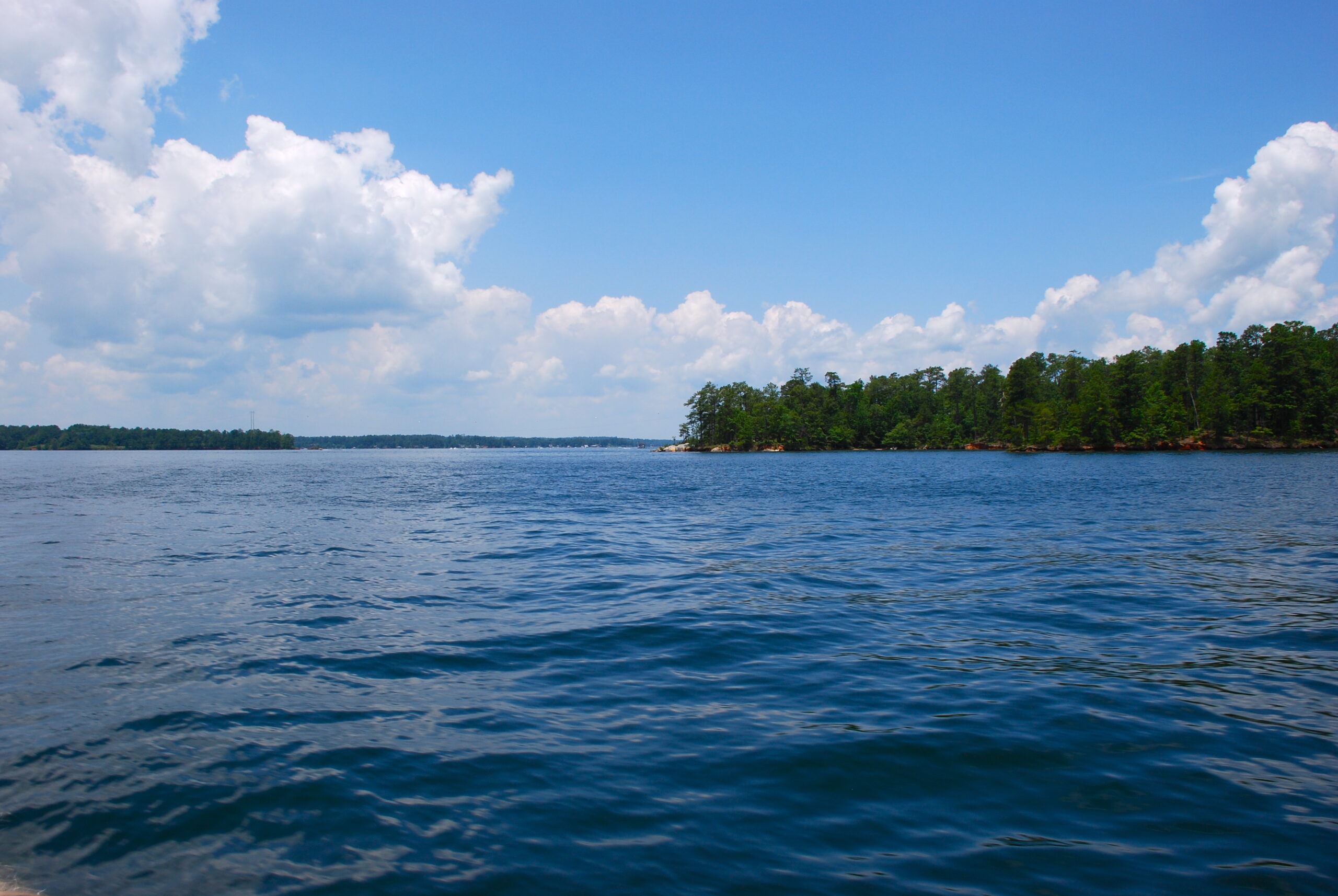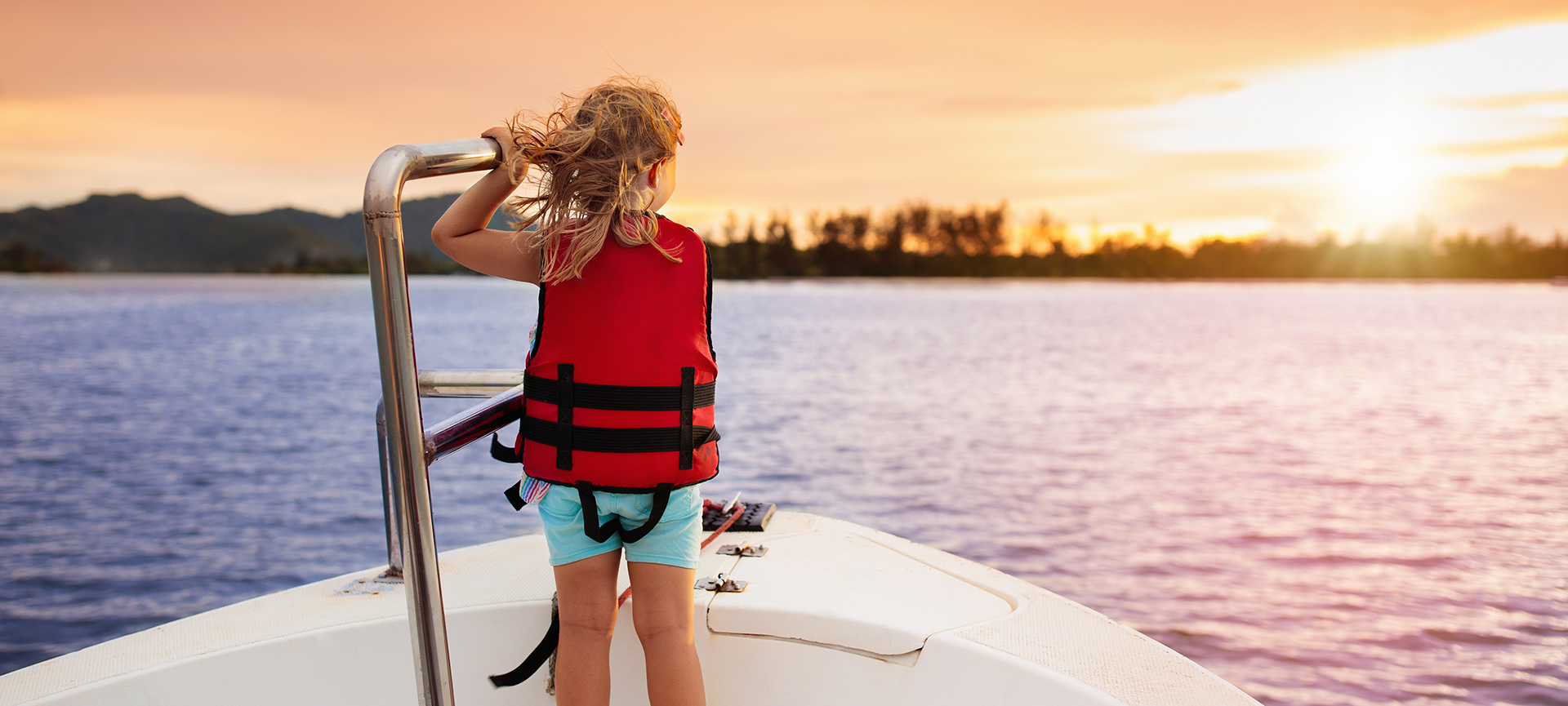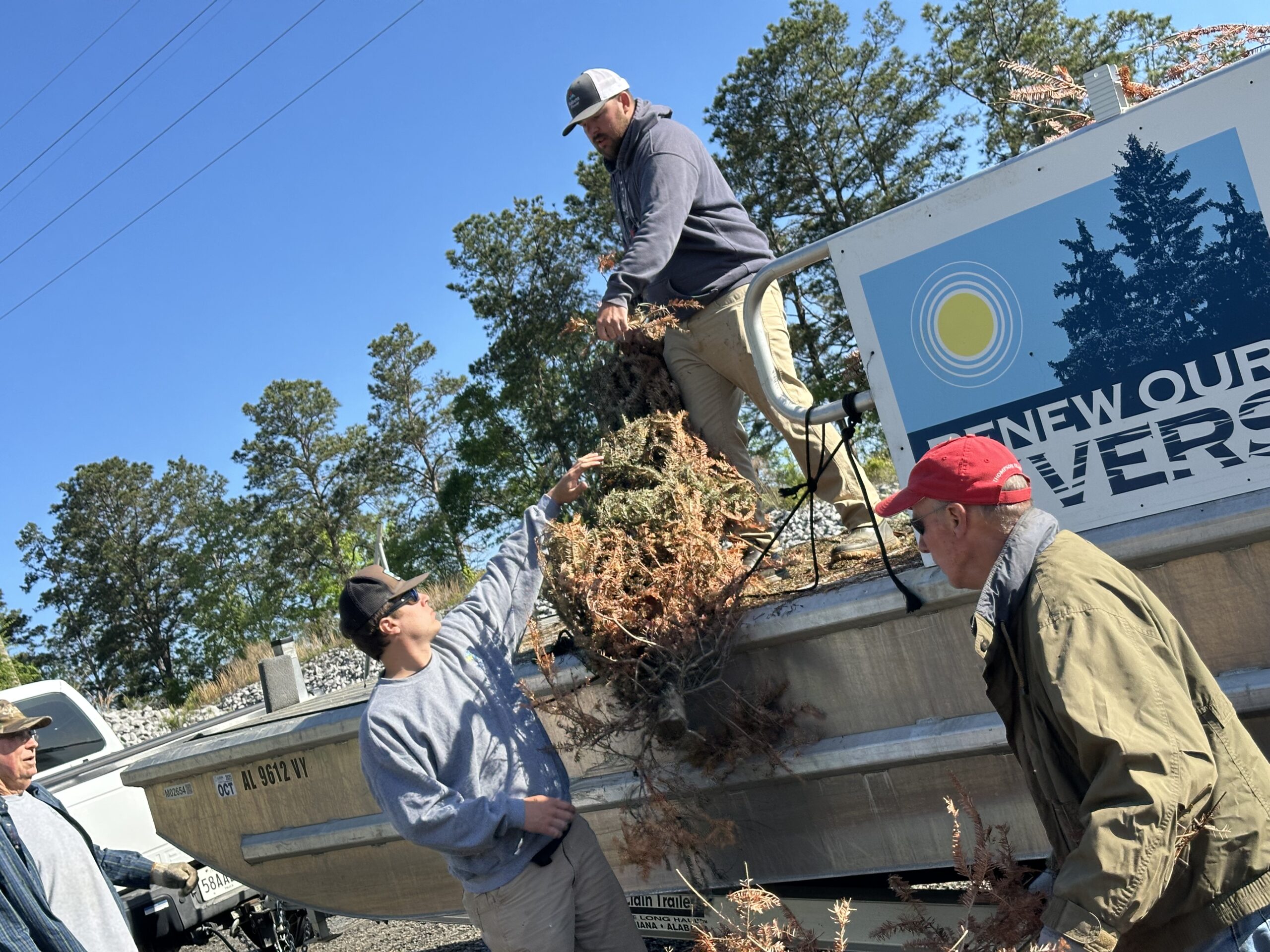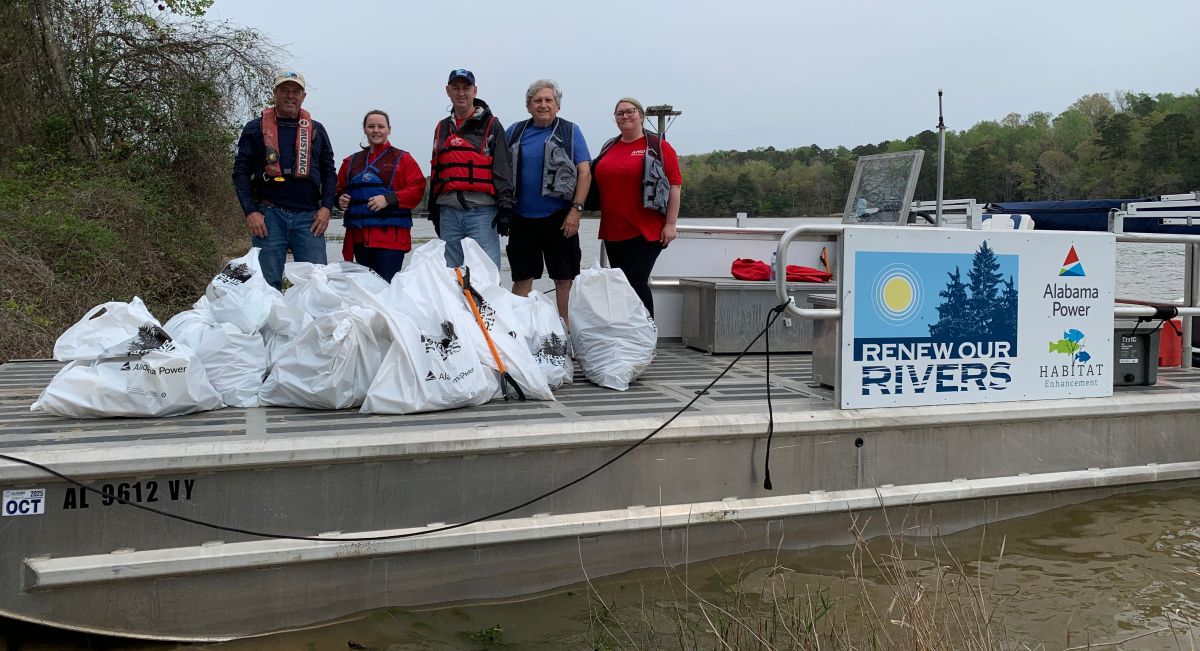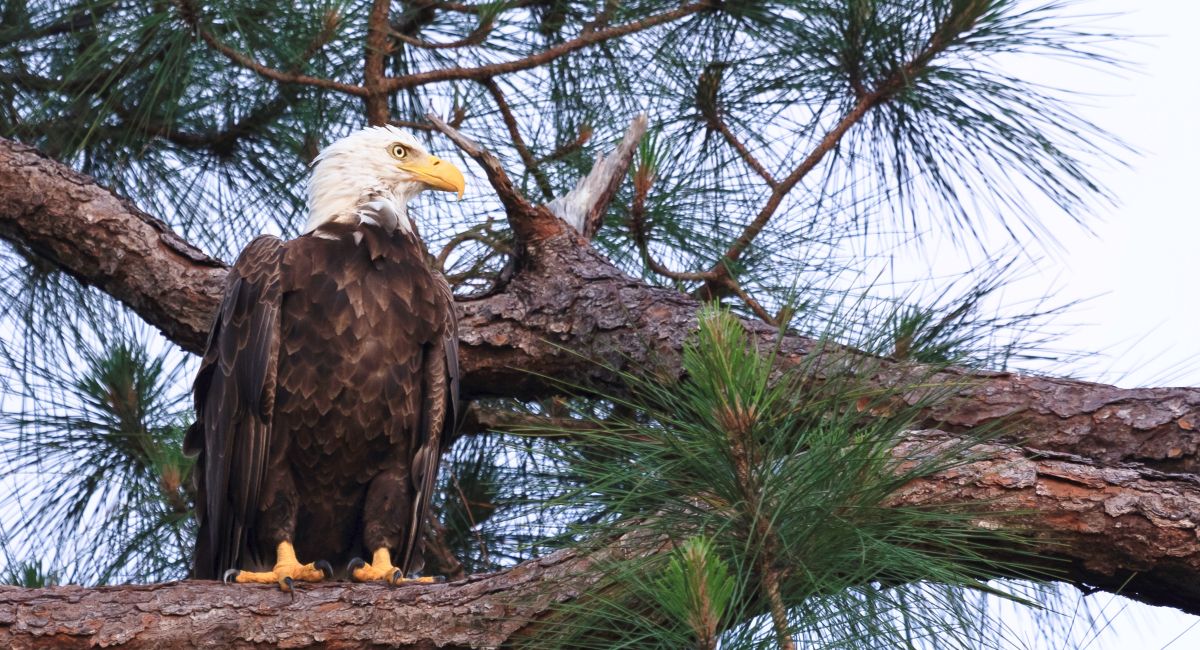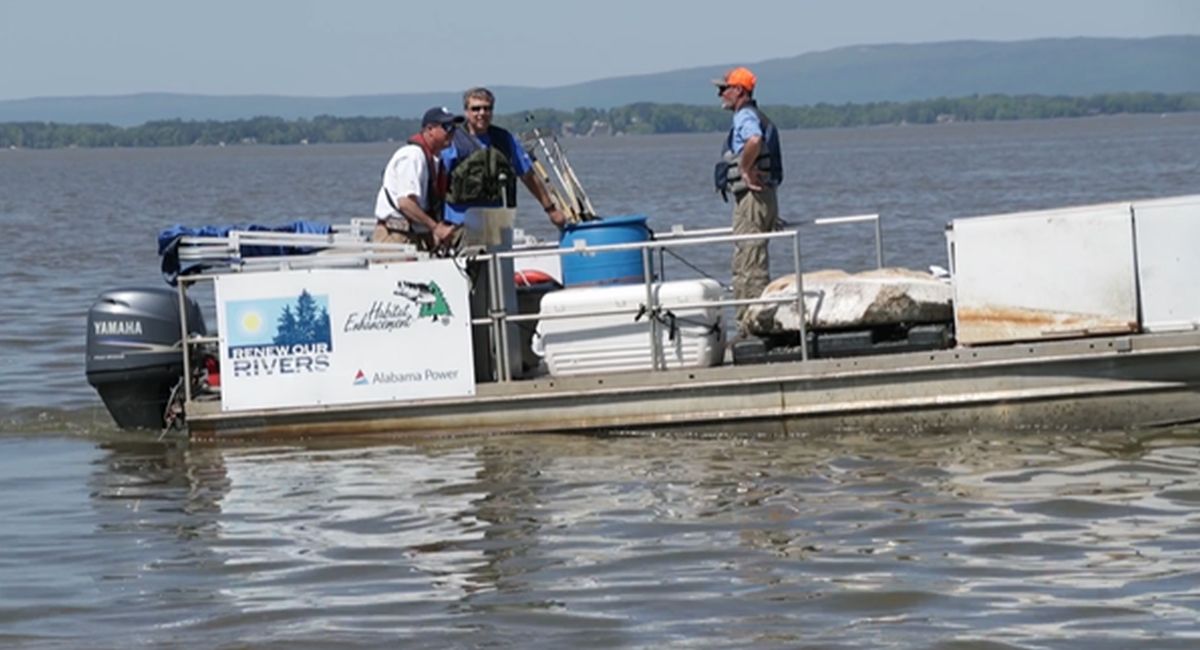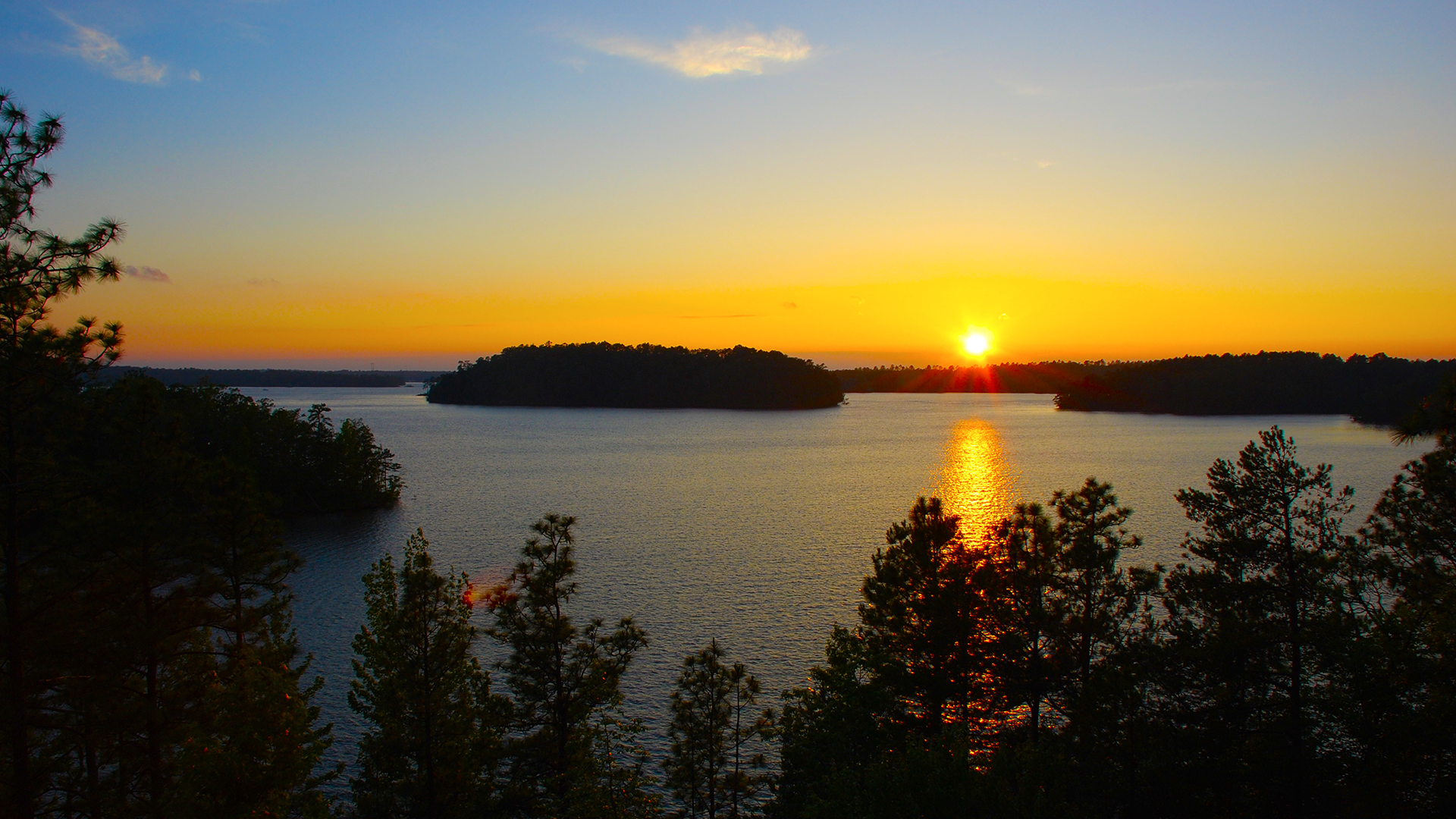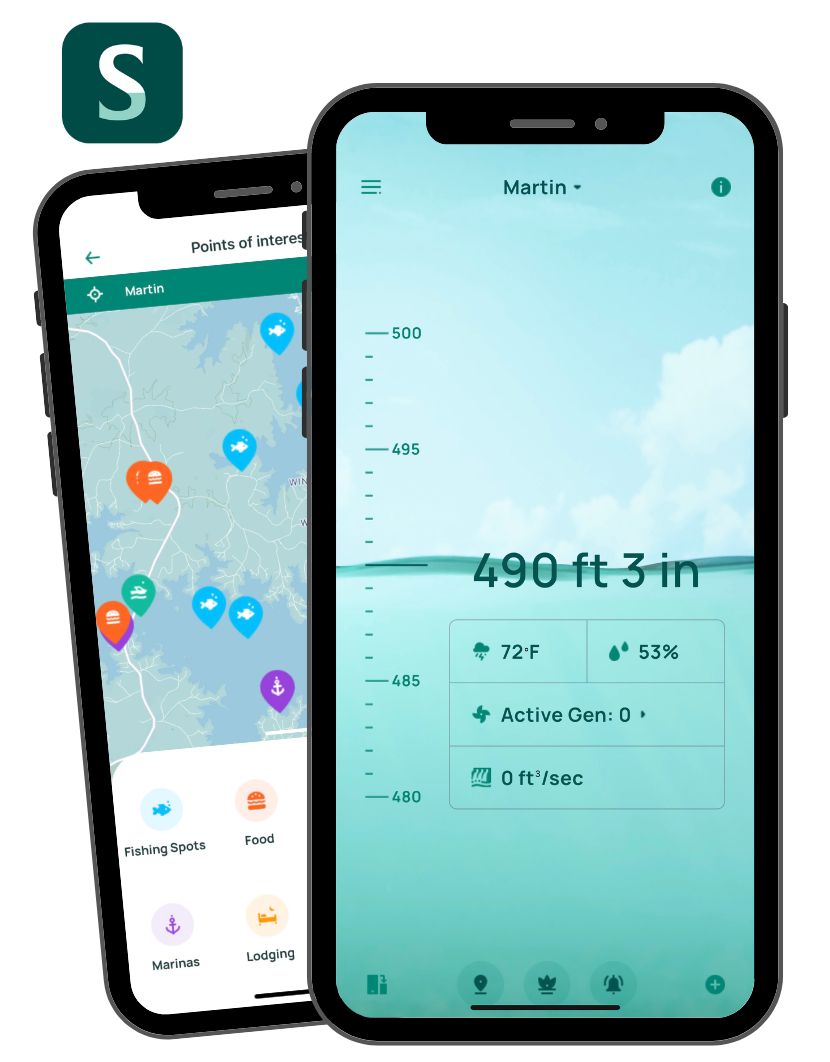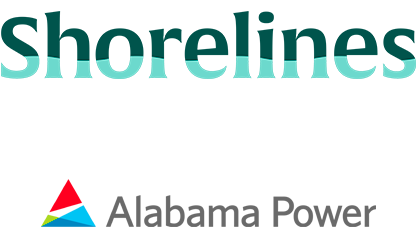Auburn’s eagle whisperer and Russell Lands naturalist has a passion for nature, and loves sharing her life’s calling with others.
If you can walk through a forest and not see the wonder around you, double back and repeat the process in the company of Marianne Hudson. She’s your eyes, your ears and the key to unveiling what’s around every branchy twist and wooded turn in Russell Forest by Lake Martin.
A naturalist, wildlife biologist and licensed falconer, Hudson can also tell you how to keep deer from eating your flowers along the lake and the measures to follow if you find an injured animal. She’s the one the Alabama Department of Conservation’s game wardens call for help. And the trainer who readies Auburn University’s famous eagles to land on the 50-yard-line at the beginning of every home game.
Hudson is, indeed, a one-stop-shop of information, discovery, education and expertise. Hers is contagious knowledge that fills you with the urge to get outside. Her own journey started in a city — Baltimore, Maryland — with summers on the Chesapeake Bay. It took some years to find her way to rural Alabama, but given the 12 years of full-time work at the Auburn University-based Southeastern Raptor Center and her part-time naturalist role for 25,000 acres of Russell Lands property on Lake Martin, we can claim Hudson as a state treasure.
She certainly knows her adopted land from the ground up. While the rest of us shiver in this bleak season and view the cold outdoors as hopeless, Hudson suggests a nature walk.
“We’ll look for signs of reawakening,” says the guide, keenly familiar with 100 miles of trails around the lake. “It’s a lesson to look at something that appears to be dead and then see that it’s just waiting to burst forward. There’s always something going on under rotten logs and rocks in Russell Forest — we find salamanders all year long and toads and frogs, too. You don’t need to wait until spring.”
Perhaps this appreciation of winter is just a rehearsal for Hudson’s favorite season. “I get stirred up when springtime comes,” she says. “Russell Forest is like Grand Central Station with birds chirping, does with their bellies bursting as they’re about to drop fawns, and baby squirrels and young chipmunks scampering all around. It’s like a Disney movie out there where you can even see foxes and young turkeys. The excitement that’s in our blood is in theirs, too. Even crotchety old groundhogs have a spring in their step.”
 Nature is second nature for Hudson. From childhood forward, she’s been at home in open spaces. “I believe my direction was guided from the start,” she explains of her early habit of rescuing turtles and chipmunks, raising a pet owl, flipping over logs to see what lurked beneath, and her knack of finding bones, antlers and old shells. “I had outdoorsy parents and four older brothers who loved to hunt. I never had a Barbie. Ever.” Some years later, she studied wildlife biology and management at the University of Maryland with a specialty in white-tailed deer and an equal interest in opossums and raptors.
Nature is second nature for Hudson. From childhood forward, she’s been at home in open spaces. “I believe my direction was guided from the start,” she explains of her early habit of rescuing turtles and chipmunks, raising a pet owl, flipping over logs to see what lurked beneath, and her knack of finding bones, antlers and old shells. “I had outdoorsy parents and four older brothers who loved to hunt. I never had a Barbie. Ever.” Some years later, she studied wildlife biology and management at the University of Maryland with a specialty in white-tailed deer and an equal interest in opossums and raptors.
As a result, Hudson is a font of trivia. If you ask the right question, that is. “I’m not a very well-rounded person,” she admits lightly. “I can rattle all sorts of information about slug reproduction or the litter size of a fox but in other aspects of our world, I can be a bit lacking.”
Maybe that’s why she’d actually never heard of Auburn University when the job offer as assistant director of the Raptor Center came along. “I grew up without football ever being on our TV,” she says, adding, “It’s a little ironic considering how recognizable I’ve become during the football season.”
From late June through December, Hudson and her colleague Andrew Hopkins fly Spirit, a bald eagle, and Nova, a golden, at Jordan-Hare Stadium on the Auburn campus. “We put them through their paces and they receive the majority of their meals in the stadium.”
The birds, either of which might be tapped to fly during pregame events (“depending on who’s got his game face on”), dive and swoop each day in preparation for their star moment. “I joke that we feed them bits of Bulldog, Gator and Elephant but it’s actually more like dead rats, mice, chicken and quail. They get the satisfaction that comes with a big meal of a dead animal at the end of a successful flight, right on the 50-yard-line.”
That meal that moment, is the longest 60 seconds of Hudson’s game day. “The bird has a tracking device so I’m not worried about losing him,” she says. “But we do not want to disappoint our fans so we stand there hoping everything goes according to plan.”
As for the eagle itself, the crowd is only a mild distraction thanks to his focus on the food, the months of routine practice, and children. The latter are the students in some 300 classrooms where Hudson presents educational programs with Auburn’s cast of 27 nonreleasable raptors, a traveling show of hawks, owls, falcons, vultures and the Auburn eagles.
“We do sessions on our ‘wild neighbors,’ tailoring each visit to the kids’ grade level. Just imagine the noise from 500 elementary school students when we walk in. Those students help keep the birds desensitized to noise and to the clapping, photographs and crowd sounds of a game day.”
While the desensitizing is convenient, the classroom visits — on behalf of both the Raptor Center and Russell Lands — are so much more. They channel Hudson’s passion for her life’s calling, providing her a way to reach the next generation. In the schools and in themed programs at her Naturalist Cabin at Russell Crossroads, Hudson guides but doesn’t preach.
 “I want each child to be inquisitive and predictive of what we might find,” she explains. “I’m teaching kids to keep their eyes open and be aware that there are entire dramas being lived out right under our feet by creatures lower on the food chain than us. I realize that not every child is going to fall in love with a snail, but the skills they learn here can echo above and beyond class instruction. It’s just awareness.”
“I want each child to be inquisitive and predictive of what we might find,” she explains. “I’m teaching kids to keep their eyes open and be aware that there are entire dramas being lived out right under our feet by creatures lower on the food chain than us. I realize that not every child is going to fall in love with a snail, but the skills they learn here can echo above and beyond class instruction. It’s just awareness.”
Parents and teachers learn awareness, too. Especially the one teacher who quietly whispered a question into Hudson’s ear. “She asked me what time in the morning I needed to get up to spread all those things around Russell Forest,” the naturalist says with a smile. “I explained that I was finding creatures and the ‘surprises’ at the same time she was, that I hadn’t put anything out like an Easter egg hunt. It was obvious she’d never been on a nature walk as a child with someone like me.”
These days it’s easy to take the walk with Hudson. Families sign up for the guided tours or drop into the Naturalist Cabin programs; mothers schedule Hudson for birthday parties (perhaps a meet-and-greet with a crow, a hawk and maybe a few frogs). The Raptor Center presentations travel mostly to schools, Boy Scout troops and Auburn clubs.
Hudson is admittedly high energy. “I’m pretty much always going and doing,” she says. And subtly driving home her innermost beliefs about wildlife conservation. “If we can turn on a light and get people engaged in the natural world, they will learn to care about it and conserve it. You’re just not going to care and protect anything you don’t know about or understand.
“If there’s someone out there who hasn’t experienced nature and had it stir up inside them, I invite them to come walk with me.”
To schedule that walk — or any other naturalist activity at Russell Forest — contact Hudson at naturalist@russelllands.com or 256-496-2710.
— Carolanne Roberts
Photo Credit: Auburn University Photographic Services, Tony Hall.


